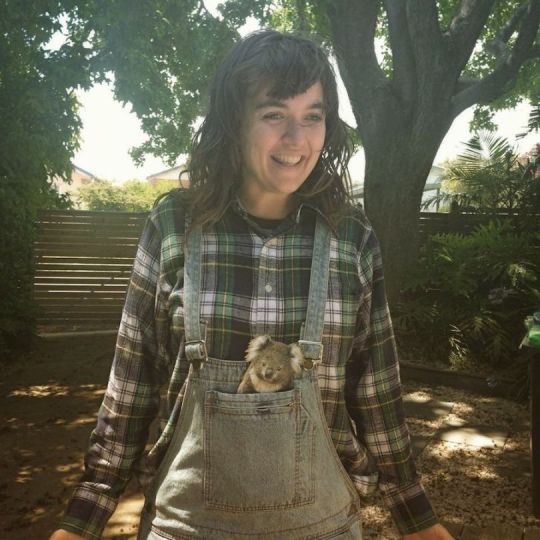#maryam qudus
Text
youtube
La Luz - Strange World
#la luz#strange world#shana cleveland#alice sandahl#lena simon#audrey johnson#maryam qudus#surf noir#garage psych#news of the universe#2024#Youtube
1 note
·
View note
Text
After this, it is you who kill one another and drive out a party of you from their homes, assist (their enemies) against them in sin and transgression. And if they come to you as captives, you ransom them, although their expulsion was forbidden to you. Then do you believe in a part of the Scripture and reject the rest? Then what is the recompense of those who do so among you, except disgrace in the life of this world, and on the Day of Resurrection, they shall be consigned to the most grievous torment. And Allah is not unaware of what you do [Al Baqarah -85].
This ayah is about Bani Israel. Allah is saying this to the Bani Israel that: you kill your own people, and you expel a group among yourselves. First, you make them a “Fareeq,” which means you cast them out yourselves. You say to yourselves that these people are outcast, they have left the religion, they are a deviant group, they are a disease in our society, they are Fareeq (separated from us somehow). Once you establish that, then you think it is okay for you to kick them out of their homes.
You advance against them in animosity, justifying your sin by saying they are deviant people; these are murtad, these are munafiq, we are supposed to fight them.
Do you see the similarity? First they cast them out, separate them, put them into groups, divide the people, because division makes them weak, and then they kick them out of their homes. They justify their sin by saying, “those are animals, people of darkness, terrorists, so we are supposed to fight them. We are not doing anything wrong. They deserve it.”
Those are they who have bought the life of this world at the price of the Hereafter. Their torment shall not be lightened nor shall they be helped [Al Baqarah - 85]
And indeed, We gave Musa (Moses) the Book and followed him up with a succession of Messengers. And We gave 'Iesa (Jesus), the son of Maryam (Mary), clear signs and supported him with Ruh-ul-Qudus [Jibrael (Gabriel) ]. Is it that whenever there came to you a Messenger with what you yourselves desired not, you grew arrogant? Some, you disbelieved and some, you killed [Al Baqarah - 86]
In this ayah, Allah is saying that “we swear we gave the book to Musa AS, and we sent messenger after messenger after Musa AS who confirmed about the book. It began with Musa AS and ended with Esa AS. We gave Esa AS clearest proof and we aided him with Rooh ul Quds - the rooh of the sanctified one, (this is the title used for Jibraeel AS). Every single time a Messenger would come to you with something you didn’t like, it wasn’t suited to you, you didn’t find it adjustable to your personality, then you sought your own greatness. You thought that you were greater than the text. Saying, “I am not comfortable with this Hukm over here. I am not sure I like what Allah says here.” This attitude is Istikbaar. Thinking your own greatness. And there was a group of people you lied against, And a group of them, you killed.
And they say, "Our hearts are wrapped (i.e. do not hear or understand Allah's Word)." Nay, Allah has cursed them for their disbelief, so little is that which they disbelieve. [Al Baqarah - 87]
They say to the Prophet peace be upon him, that no matter what you say, we cannot understand because our hearts are wrapped. Prophet peace be upon him is telling them about all the crimes that they (Quraysh) have committed, and they are saying, we do not see them, our hearts are secured by Allah. Allah has protected our hearts from this kind of talk.
Allay says, no, Allah has cursed them for their disbelief; it's not some veiling that Allah did to protect them.
And when there came to them (the Jews), a Book (this Quran) from Allah confirming what is with them [the Taurat (Torah) and the Injeel (Gospel)], although aforetime they had invoked Allah (for the coming of Muhammad Peace be upon him) in order to gain victory over those who disbelieved, then when there came to them that which they had recognized, they disbelieved in it. So let the Curse of Allah be on the disbelievers.
They used to pray for the Prophet pbuh. But when He came, they disbelieved.
How bad is that for which they have sold their own selves, that they should disbelieve in that which Allah has revealed (the Quran), grudging that Allah should reveal of His Grace unto whom He will of His slaves. So they have drawn on themselves wrath upon wrath. And for the disbelievers, there is a disgracing torment.
They don’t want to accept the superiority of an Arab; they wanted themselves to be the chosen nation. They had the urge to dominate over the Arab people. Their problem was “why did the messenger come from the Arab nation?, why didn’t the final messenger come from among us?
Allah says, what a horrible trade they made. To keep their pride, they sold the truth for it. Then they drew upon themselves rage on top of rage.
They saw humiliation for themselves in accepting a prophet from another nation. So, for them, there will be a humiliating punishment.
Follow me on IG: _seharified
5 notes
·
View notes
Text
4/99
The 99 Name of Allah (SWT)
Al-Quddus (The Most Sacred/The Most Holy)
Written in arabic: ٱلْقُدُّوسُ
The One who is pure from any imperfection and clear from children and adversaries for Allah سُبْحَٰنَهُۥ وَتَعَٰلَىٰ is Al-Qaddus, so far removed of any imperfection. He has no shortcomings, evil is not attributed to Him. The mere mention of being free from defects borders on insult as it implies the possibility of imperfection. He transcends all that we perceive as perfection, it is inconceivable. All sublime attributes belong to Him.
The Qur'an mentions the concept of the Holy Spirit (Ruh al-Qaddus) four times. It is understood that He purifies and makes holy through this spirit. This is the concept of the divine force and influence Allah سُبْحَٰنَهُۥ وَتَعَٰلَىٰ has over His creatures. Whenever you see either Ruh al-Qaddus or Ruh al-Amin (the faithful or trustworthy spirit, see 26:193 for example) scholars interpret it as being interchangeable with the Angel Jibrel. In the tafsir of Ibn Kathir for Surah Maidah ayah 110, "O `Isa, son of Maryam! Remember My favor to you and to your mother when I supported you with Ruh il-Qudus (Jibril) so that you spoke to the people in the cradle and in maturity." When Allah سُبْحَٰنَهُۥ وَتَعَٰلَىٰ mentions the passing of this spirit it's understood as to cast a reflection of His divine characteristics on His creation. It makes a thing pure, and wholesome and removes any imperfections. Isa (as) was gifted with this quality making him infallible.
#islamic#namaz#muslims#duaa#poetic#islamic knowledge#islampost#islamdaily#learning#knowledge#allahﷻ#allah#99 names of allah
7 notes
·
View notes
Text
Sikap Orang Yahudi terhadap para Rasul dan kitab kitab yang diturunkan Allah.
Surah Al Baqarah ayat 87.yang artinya...
Dan sesungguhnya Kami telah mendatangkan Al Kitab ( Taurat) kepada Musa, dan kami telah menyusulinya ( berturut-turut) sesudah itu dengan rasul rasul , dan telah Kami berikan bukti bukti kebenaran ( Mu'jizat) kepada Isa putera Maryam dan Kami memperkuatnya dengan Ruhul - Qudus) Apakah setiap datang kepadamu seorang Rasul membawa sesuatu ( pelajaran) yang tidak sesuai dengan keinginanmu lalu kamu angkuh, maka beberapa orang ( diantara mereka) kamu dustakan dan beberapa orang (yang lain) kamu bunuh?
Penjelasan dari ayat diatas..... Kejadian Isa a.s
Adalah kejadian yang luar biasa tanpa bapak yaitu dengan tiupan Ruhul Qudus oleh Jibril dari diri Maryam. Ini termasuk mi' mu'jizat Isa a. s. Menurut jumhur muffassirin, bahwa Ruhul Qudus itu adalah malaikat Jibril .
0 notes
Text
"Allah is Just the Holy Spirit." From Surah 3, Ali Imran, "Mary's Ancestor."

3:27-32
You cause the night to enter the day, and You cause the day to enter the night; and You bring the living out of the dead, and You bring the dead out of the living. And You give provision to whom You will without account."
Let not believers take disbelievers as allies rather than believers. And whoever [of you] does that has nothing with Allah, except when taking precaution against them in prudence. And Allah warns you of Himself, and to Allah is the [final] destination.
Say, "Whether you conceal what is in your breasts or reveal it, Allah knows it. And He knows that which is in the heavens and that which is on the earth. And Allah is over all things competent.
The Day every soul will find what it has done of good present [before it] and what it has done of evil, it will wish that between itself and that [evil] was a great distance. And Allah warns you of Himself, and Allah is Kind to [His] servants."
Say, [O Muhammad], "If you should love Allah, then follow me, [so] Allah will love you and forgive you your sins. And Allah is Forgiving and Merciful."
Say, "Obey Allah and the Messenger." But if they turn away - then indeed, Allah does not like the disbelievers.
If we are going to establish God is a Father and the maker of the Son, and the process took place during the transition between what is infinite what is finite, then we need, as the verses state, to establish Allah is the Holy Spirit foremost.
The Quran says "Allah warns; He is the destination, he is present and He is at a distance." This concept, called Ruh, explains how God infiltrates all reality, all consciousness, relays all thought, intuition and experience throughout creation, specifically in the transfiguration of ordinary organic matter and human tissue into the Christ:
Rūḥ al-qudus (Arabic: روح القدس, "the holy spirit" or "spirit of holiness"), ar-rūḥ al-amin (Arabic: الروح الأمين, "the faithful/trustworthy spirit"), is a Quranic expression that describes a source or means of prophetic revelations, commonly identified with the angel Gabriel.[11][12][13] Quranic commentators disagreed in their identification of Gabriel with various uses of the word rūḥ.[13][14] For some, ar-rūḥ is simply the angelic quality bestowed upon humans, but not an angel himself.
The phrase rūḥ al-qudus, commonly translated as the "holy spirit" or the "spirit of holiness", occurs four times in the Quran,[13] in Quran 2:87 and 253,[15] Al-Ma'idah verse 110,[16] and An-Nahl verse 102.[17] In three instances, it is described as the means by which God "strengthened" Jesus, and in the fourth it is identified as the one brought down God's truth to his prophet.[13]
As interpreted to refer to the Archangel Gabriel[edit]
The term Rūḥ al-Qudus is also an epithet referring to the Archangel Gabriel,[18] who is related as the Angel of revelation and was assigned by God to reveal the Qurʼan to the Islamic prophet Muhammad and who delivered the Annunciation to Mary.[19]
In the two suras in which the Qur'an refers to the angel Gabriel, it does so by name.[20] However, some hadiths and parts of the Qurʼan may arguably lend support to the alternative view.
It appears to be indicated by the Quran in sura Maryam, ayat 17–21, that it was the angel Gabriel who gave to Mary the tidings that she was to have a son as a virgin:
"screening herself off from them. Then We sent to her Our angel, ˹Gabriel,˺ appearing before her as a man, perfectly formed. She appealed, “I truly seek refuge in the Most Compassionate from you! ˹So leave me alone˺ if you are God-fearing.” He responded, “I am only a messenger from your Lord, ˹sent˺ to bless you with a pure son.”
She wondered, “How can I have a son when no man has ever touched me, nor am I unchaste?” He replied, “So will it be! Your Lord says, ‘It is easy for Me. And so will We make him a sign for humanity and a mercy from Us.’ It is a matter ˹already˺ decreed.”
0 notes
Video
youtube
Shalom Peace ਸ਼ਾਂਤੀ ειρήνη शांति שָׁלוֹם سلام
Shalom masih yeshua men aap saboh ki salamati ho
Shalom ka mtlab hai tumahri shanti ho
LÚQÁ 1
; 39 Un hí dinoṉ Maryam uṭhí, aur jaldí se paháṛí mulk meṉ Yahúdáh ke ek shahr ko gayí, 40aur Zakaryáh ke ghar meṉ dáḳhil hokar Ilíshibaʻ ko salám kiyá. 41Aur joṉhíṉ Ilíshibaʻ ne Maryam ká salám suná, to aisá húá ki bachcha us ke peṭ meṉ uchhal paṛá, aur Ilíshibaʻ Rúhuʼl Quds se bhar gayí, 42aur baland áwáz se pukárke bolí, ki Tú ʻauratoṉ meṉ mubárak, aur tere peṭ ká phal mubárak hai; 43aur mujh par yih fazl kaháṉ se húá, ki mere Ḳhudáwand kí máṉ mere pás áí? 44Kyúṉki dekh, joṉhíṉ tere salám kí áwáz mere kán meṉ pahuṉchí, bachcha máre ḳhushí ke mere peṭ meṉ uchhal paṛá. 45Aur mubárak hai wuh jo ímán láí, kyúṉki jo báteṉ Ḳhudáwand kí taraf se us se kahí gayí thíṉ, wuh púrí hoṉgí
LÚQÁ 1
; 35 Aur firishte ne jawáb meṉ us se kahá, ki Rúhuʼl Quds tujh par názil hogá, aur Ḳhudá Taʻálá kí qudrat tujh par sáya ḍálegí, aur is sabab se wuh pákíza jo paidá honewálá hai Ḳhudá ká Beṭá kahláegá.
1 YÚHANNÁ 5
; 12 Jis ke pás Beṭá hai, us ke pás zindagí hai;
Galatíoṉ 4:6 (URDR55)
Aur chúṉki tum beṭe ho, is liye Ḳhudá ne apne Beṭe kí Rúh hamáre diloṉ meṉ bhejí, jo Abbá, yaʻní, Ai Báp, kah kahkar pukártí hai.
ROMÍOṈ 15
; 4 Kyúṉki jitní báteṉ pahle likhí gayíṉ, wuh hamárí taʻlím ke liye likhí gayíṉ, táki sabr se aur kitáb i muqaddas kí tasallí se ummed rakkheṉ.
Yúhanná 1:1 (URDR55)
Ibtidá meṉ Kalám thá, aur Kalám Ḳhudá ke sáth thá, aur Kalám Ḳhudá thá.
. 4Us meṉ zindagí thí; aur wuh zindagí ádmíoṉ ká núr thá.
AB JO KOI MASIH YESHUA PAR IMAN LATA OR JISPAR
MASIH YESHUA PAR IMAN LANE SE RUH L QUDUS NAZIL HAI
OR WUH PAKIZA BETE KI RUH DIL MEN HAIN
JISKE KALAM MEN ZINDGHI HAI
TO JAB APNE SE KISI DUSRE KO SHALOM SALAM KEHTA HAI
TO YUNHI ILISHBA KI TARAH JAB WUH SALAM SUNTA HAI
JISKE KAN HUN WUH SUNE RUH KILSIYAON SE KAYA KEHTE HAI
41Aur joṉhíṉ Ilíshibaʻ ne Maryam ká salám suná, to aisá húá ki bachcha us ke peṭ meṉ uchhal paṛá, aur Ilíshibaʻ Rúhuʼl Quds se bhar gayí,
TO BACHA INSANI JISAMANI OR SUBAWIK ZINDGHI KI TAMSIL HAI TALIM
TO JAB HUM SHALOM SALAM KEHTE HAI TO DUSRE ZINDGHI YUHI SALAM SUNTE HI RUH L QUDUS SE BHAR JATI HAI
MAGAR USKE SALAM SE JISMEN ZINDGHI HAI
LÚQÁ 10
; 5 Aur jis kisí ghar meṉ dáḳhil ho, pahle kaho, ki Is ghar kí salámatí ho. 6Agar waháṉ koí salámatí ká farzand hogá, to tumhárá salám us par ṭhahregá;
SALAMATI KA FARZAND YANI
SHANTI KA WARISH
JISKE DIL KE ANDAR BETE KE RUH HUGI
YÚHANNÁ 1
YÚHANNÁ 1
; 32 Aur Yúhanná ne yih gawáhí dí, ki Maiṉ ne Rúh ko kabútar kí tarah ásmán se utarte dekhá hai, aur wuh us par ṭhahr gayí.
LÚQÁ 10
; 5 Aur jis kisí ghar meṉ dáḳhil ho, pahle kaho, ki Is ghar kí salámatí ho. 6Agar waháṉ koí salámatí ká farzand hogá, to tumhárá salám us par ṭhahregá;
YÚHANNÁ 14
; 27 Maiṉ tumheṉ itmínán diye játá húṉ; apná itmínán tumheṉ detá húṉ: jis tarah dunyá detí hai, maiṉ tumheṉ us tarah nahíṉ detá. Tumhárá dil na ghabráe aur na ḍare.
To ruh l quds humen kalam men saaf sikhata yaad dilata bata hai
Ki masih yesu se pehle humar paas duniya ka diya hua itminan tha
Jisse humara dil ghbarata or darta tha
ROMÍOṈ 8
; 15 Kyúṉki tum ko gulámí kí rúh nahíṉ milí, jis se phir ḍar paidá ho; balki lepálak hone kí rúh milí, jis se ham Abbá, yaʻní Ai Báp, kahkar pukárte haiṉ.
2 Tímuthiyus 1:7 (URDR55)
Kyúṉki Ḳhudá ne hameṉ dahshat kí rúh nahíṉ, balki qudrat, aur mahabbat, aur tarbiyat kí rúh dí hai.
Masih ne humen wuhi itminan vapis de k gaye jo adam ne adan bhag men khoya tha
PAIDÁISH 3
; 8 Aur unhoṉ ne Ḳhudáwand Ḳhudá kí áwáz, jo ṭhanḍe waqt bág̣ meṉ phirtá thá, suní:
Thanda waqt yani shanty shalom peace of heart
Yesu wuhi shanty shalom peace jisse pehla adam mar gaya tha dusra adma phir ruh l quds ki madad se aur baap ke jalal men phir murdo men ji utha kin murdo men
Se jo shanty or peach or shalom se adam ke sath jitni bhi adam mar gai
Wuh sari adamjat masih yeshu ke zinda hune se humesha ke liye
Peace shalom shanti men phir zinda hui or hai or humesha rahe gi
YÚHANNÁ 20
; 19 Phir usí din jo hafte ká pahlá din thá, shám ke waqt, jab waháṉ ke darwáze jaháṉ shágird the, Yahúdíoṉ ke ḍar se band the, Yísúʻ ákar bích meṉ khaṛá húá, aur un se kahá, ki Tumhárí salámatí ho! 20Aur yih kahkar us ne apne háth aur paslí unheṉ dikháí. Pas shágird Ḳhudáwand ko dekhkar ḳhush húe. 21Yisúʻ ne phir un se kahá, ki Tumhárí salámatí ho; jis tarah Báp ne mujhe bhejá hai, usí tarah maiṉ bhí tumheṉ bhejtá húṉ. 22Aur yih kahkar un par phúṉká aur un se kahá, ki Rúhuʼl Quds lo.
Romíoṉ 8:6 (URDR55)
Aur jismání níyat maut hai; magar rúhání níyat zindagí aur itmínán hai:
Galatíoṉ 5:22 (URDR55)
Magar Rúh ká phal mahabbat, ḳhushí, itmínán, tahammul, mihrbá-ní, nekí, ímándárí,
23hilm, parhezgárí hai:
2 Patras 1:2 (URDR55)
Ḳhudá, aur hamáre Ḳhudáwand Yisúʻ kí pahchán ke sabab fazl aur itmínán tumheṉ ziyáda hotá rahe;
2 Thissaluníkíoṉ 1:2 (URDR55)
Fazl aur itmínán Ḳhudá Báp aur Ḳhudáwand Yisúʻ Masíh kí taraf se tumheṉ hásil hotá rahe.
Amsál 1:33 (URDR55)
Lekin jo merí suntá hai wuh mahfúz hogá, Aur áfat se niḍar hokar itmínán se rahegá.
Filippíoṉ 4:7 (URDR55)
to Ḳhudá ká itmínán, jo samajh se biʼlkull báhar hai, tumháre diloṉ aur ḳhayáloṉ ko Masíh Yisúʻ meṉ mah-fúz rakkhegá.
Kulussíoṉ 3:15 (URDR55)
Aur Masíh ká itmínán, jis ke liye tum ek badan hokar buláe bhí gaye ho, tumháre diloṉ par hukúmat kare, aur tum shukrguzár raho.
Filippíoṉ 4:9 (URDR55)
Jo báteṉ tum ne mujh se síkhíṉ, aur hásil kíṉ, aur suníṉ, aur mujh meṉ dekhíṉ, un par ʻamal kiyá karo; to Ḳhudá jo itmínán ká chashma hai tumháre sáth rahegá.
Yúhanná 16:33 (URDR55)
Maiṉ ne tum se yih báteṉ is liye kahíṉ, ki tum mujh meṉ itmínán páo. Dunyá meṉ musíbat uṭháte ho; lekin ḳhátir jamaʻ rakkho; maiṉ dunyá par gálib áyá húṉ.
Romíoṉ 15:13 (URDR55)
Pas Ḳhudá, jo ummed ká chashma hai, tumheṉ ímán rakhne ke báʻis sárí khushí aur itmínán se maʻmúr kare, táki Rúhuʼl Quds kí qudrat se tumhárí ummed ziyáda hotí jáe.
Romíoṉ 8:14 (URDR55)
Is liye ki jitne Ḳhudá kí Rúh kí hidáyat se chalte haiṉ, wuhí Ḳhudá ke beṭe haiṉ.
FILIPPÍOṈ 4
; 7 to Ḳhudá ká itmínán, jo samajh se biʼlkull báhar hai, tumháre diloṉ aur ḳhayáloṉ ko Masíh Yisúʻ meṉ mah-fúz rakkhegá.
2 THISSALUNÍKÍOṈ 3
; 16 Ab Ḳhudáwand jo itmínán ká chashma hai, áp hí tum ko hamesha aur har tarah se itmínán baḳhshe. Ḳhudáwand tum sab ke sáth rahe.
MUKÁSHAFA 1
; 5 aur Yisúʻ Masíh kí taraf se, jo sachchá gawáh, aur murdoṉ meṉ se jí uṭhnewáloṉ meṉ pahlauṭhá, aur dunyá ke bádsháhoṉ par hákim hai; tumheṉ fazl aur itmínán hásil hotá rahe. Jo ham se mahabbat rakhtá hai, aur jis ne apne ḳhún ke wasíle se ham ko gunáhoṉ se ḳhalásí baḳhshí,
2 Yúhanná 1:3 (URDR55)
Ḳhudá Báp, aur Báp ke Beṭe Yisúʻ Masíh kí taraf se fazl, aur rahm, aur itmínán, sachcháí aur mahabbat samet, hamáre shámilhál raheṉge.
0 notes
Text
Spacemoth
Spacemoth – Pipe and Pistol
Wax Nine Records · Spacemoth – This Shit
米ベイエリア発、Spacemoth の「No Past No Future」は、70年代カラフルでおサイケデリックなレトロデザインと80年代テクノ&スペースポップ、ステレオラブ似。アフガニスタン系の Spacemoth (本名 Maryam Qudus)さんはこれまでプロデューサー兼スタジオエンジニアとして Toro Y Moi、Tune-Yards、Speedy Ortiz の Sadie Dupuis らとスタジオワークをつとめてきましたが、今年、Johanna Warren, Sad13 らのいる Wax Nine レーベルと契約。彼女自身のアナログシンセサイザー Yamaha CS-50, Korg Polysix…

View On WordPress
0 notes
Photo

Spacemoth - No Past No Future
(Glitch Pop, Psychedelic Pop, Dream Pop)
Maryam Qudus' debut as Spacemoth marries fuzzy, retro pop à la Stereolab and Broadcast with the warmth and expressiveness of modern psychedelia and post-punk. No Past No Future's focus on strong grooves, cosmic songwriting, and reserved vocal performances make for one engrossing, magical listen.
☆☆☆☆
Ever since she was young, Maryam Qudus has been drawing out her own path in the world. Being a first-generation child of working class, Afghan immigrant parents, the California singer/songwriter and producer has been seeking her own adventure for as long as she can remember. As a kid, she took guitar lessons; a high school job allowed her to pay for vocal lessons - even learning to drive so she could take herself to them - Qudus' resolve to create unbreakable. From there, her work as Doe Eye and collaborations with artists like Sad13, Toro y Moi, and Tune-Yards inspired her to continue making her own music, experimenting with electronic ambience, tape manipulation, and noisy retro synths that slowly developed into her debut album as Spacemoth, No Past No Future. Indebted to the retro pop of Broadcast and Stereolab as well as the warmth and expressiveness of modern psychedelia and post-punk, No Past No Future is a retrofuturist odyssey whose offbeat songs make for one of the most unique and memorable listens this year.
Qudus' music favors sounds nostalgia and summery haze, the long list of synths she used on the album's Bandcamp page proof of how much effort and forethought goes into making these songs sound so eternal and timeless. Still, there's a radiance to it all that comes through the sharp analog keyboard leads on lead single Pipe and Pistol, so scratchy and melancholy you could sneak it onto a Broadcast compilation without it sticking out even a bit, or the driving post-punk drumming from Jason Slota on Asking for You acting as the centrifuge that Qudus' relaxed vocals and swooning layers of synth and guitar orbit around, a constant sense of movement within No Past No Future's songs even as they strive for a spacey, occasionally sci-fi feel through the instrumentation and Qudus' intimate songwriting. Other times, what makes No Past No Future so compelling is witnessing how Qudus struggles to reckon with time, the struggles to hang onto a single moment without thinking about how it'll soon disappear on the crunchy, dark Round in Loops or struggling to comprehend and accept mortality among the distortion and noise of Waves Come Crashing, the album's nostalgic sound in part a way for her music to sit in an ephemeral place where she can comfortably confront these feelings in a comforting, limitless environment. No Past No Future exists both in that past and that future, and it's a sound like nothing else this year.
Qudus also paces it all incredibly well and keeps No Past No Future moving at an efficient, but immersive pace. The album's dreamy, space-age sound makes it easy to fall into Qudus' world, but she keeps you invested in it through how each song connects to the ones it's situated between. Opener This Shit kicks things off with a midtempo drum loop and fizzing keyboards, subtly moving into the bustle of Pipe and Pistol and UFObird's downtempo serenity, a perfect three-track run to introduce No Past No Future to you. When things start to get more moody and ornate on the album's second half, there's a preciousness to how If I Close My Eyes and Pretend's pitch-black escapism leads into the buoyant, four-on-the-floor dance pop of Noise of Everyday Life - though the song doesn't fit quite comfortably with the rest of the album and Qudus' lo-fi production doesn't provide enough bite to the low-end for the song to hit right - and then jumping into one of the scuzziest and sentimental tracks with Berries and Watch You Cry right after, No Past No Future's emotional journey carved by Qudus' drifting emotions and slow-motion storytelling that manages to be both arresting and subdued at one, her music a roaming constellation you can follow across the skyline for hours on end.
Qudus' retro-pop sound anchors it in an environment with a general structure but endless possibilities, hissing tape noise and pulsing analog synths all she needs to take No Past No Future anywhere she wants it to, well-worn and homegrown sound that can bring the most cosmic, supernatural songs to life with their infinite possibilities. She's said before that “women are often discouraged from pursuing music in the Afghan & Muslim community, and those who follow that path receive a lot of heat," and it's clear from how much passion and heart going into No Past No Future that she refuses to let those stigmas and fear worm their way into her music for a second. Her songs are playful, confident, and surreal, stunning in their depth and gleaming with their muscular instrumentation, built strong and sturdy for the celestial adventure Qudus takes them on, No Past No Future a consistently moving listen that lets the saturated synths soak into your pores and the punchy drum loops - whether played by a person or a machine - act as the fuel for her ship. Through her galactic musical explorations, the most impactful conclusion Qudus reaches is to be blessed and astonished with what our time on earth brings us, No Past No Future a reminder of how astonishing all the experiences we get to share together truly are.
#spacemoth#no past no future#wax nine#art pop#dream pop#electronic#experimental#glitch pop#indie pop#indietronica#minimal wave#neo-psychedelia#pop#post-punk#psychedelic pop#rock#synthpop#2022#8/10#album review#2022 albums
1 note
·
View note
Text
Tafsir Ibn Kathir: Surah Al-Ma’idah Ayah 110-111
In the Name of Allah, the Most Gracious, the Most Merciful.
5:110 (Remember) when Allah will say (on the Day of Resurrection): "O `Isa, son of Maryam!
Remember My favor to you and to your mother when I supported you with Ruh - il-Qudus (Jibril) so that you spoke to the people in the cradle and in maturity;
and when I taught you the Book, the Hikmah, the Tawrah and the Injil;
and when you made out of the clay, as it were, the figure of a bird, by My permission, and you breathed into it, and it became a bird by My permission, and you healed those born blind, and the lepers by My permission, and when you brought forth the dead by My permission;
and when I restrained the Children of Israel from you since you came unto them with clear proofs, and the disbelievers among them said: `This is nothing but evident magic.'''
5:111 "And when I Awhaytu (put in the hearts of) Al- Hawariyyin to believe in Me and My Messenger, they said: `We believe. And bear witness that we are Muslims.'''
Reminding `Isa of the Favors that Allah Granted him
Allah
(Remember) when Allah will say (on the Day of Resurrection): "O `Isa, son of Maryam!
Allah mentions how He blessed His servant and Messenger, `Isa, son of Maryam, and the miracles and extraordinary acts He granted him.
Allah said,
Remember My favor to you,
when I created you from your mother, without male intervention, and made you a sign and clear proof of My perfect power over all things.
And to your mother,
when I made you testify to her chastity and you thus absolved her from the sin that the unjust, ignorant liars accused her of.
when I supported you with Ruh-il-Qudus,
the angel Jibril, and made you a Prophet, calling to Allah in the cradle and manhood. I made you speak in the cradle, and you testified that your mother was free from any immoral behavior, and you proclaimed that you worship Me. You also conveyed the news of My Message and invited them to worship Me.
so that you spoke to the people in the cradle and in maturity;
Meaning you called the people to Allah in childhood and in maturity.
And the word Tukallim means invited, because his speaking to people while a child is nothing strange by itself.
Allah's statement,
(And when I taught you the Book and the Hikmah,) the power of writing and understanding,
(and the Tawrah,) which was revealed to Musa, son of `Imran, who spoke to Allah directly.
Allah's statement,
and when you made out of the clay, as it were, the figure of a bird, by My permission,
means: `you shaped it in the figure of a bird by My permission, and it became a bird with My permission,
and you breathed into it, and it became a bird by My permission,
after you blew into it'. Then, it became a flying bird with a soul by Allah's permission.
Allah said;
and you healed those born blind, and the lepers by My permission,
This was explained before in Surah Al Imran and we do not need to repeat it here.
Allah's statement,
And when you brought forth the dead by My permission,
meaning, you called them and they rose from their graves by Allah's leave, power, intent and will. Allah said next,
and when I restrained the Children of Israel from you since you came unto them with clear proofs, and the disbelievers among them said: "This is nothing but evident magic.''
Meaning: `remember My favor, when I stopped the Children of Israel from harming you, when you brought them the clear proofs and evidence, testifying to your Prophethood and Message from Me to them. They rejected you and accused you of being a magician and tried to kill you by crucifixion, but I saved you, raised you to Me, purified you from their vulgarity and protected you from their harm.' The wording of this Ayah indicates that `Isa will be reminded of these favors on the Day of Resurrection.
Allah used the past tense in these Ayat indicating that it is a forgone matter that will certainly occur.
This Ayah also contains some of the secrets of the Unseen that Allah revealed to His Messenger Muhammad.
Allah said,
And when I (Allah) Awhaytu Al-Hawariyyin to believe in Me and My Messenger.
This is also a reminder of Allah's favor on `Isa, by making disciples and companions for him.
It is also said that Awhaytu in the Ayah means, `inspired', just as in another Ayah, Allah said;
And We inspired the mother of Musa (saying): Suckle him... (28:7)
Allah said in other Ayat,
And your Lord Awha (inspired) the bee, saying: "Take habitations in the mountains and in the trees and in what they erect. Then, eat of all fruits, and follow the ways of your Lord made easy (for you).'' (16:68-69)
Al-Hasan Al-Basri commented about the Hawariyyun, "Allah inspired them'',
As-Suddi said,
"`He put in their hearts,''
and the Hawariyyun said,
they said: `We believe. And bear witness that we are Muslims.
#god#allah#islam#quran#ayat#hadith#dua#religion#pray#prayer#salah#muslim#muslimah#hijab#revert#revert to islam#convert#convert to islam#help#revert help#islam help#convert help#revert help team#welcome to islam#how to convert to islam
1 note
·
View note
Text
New Video: Spacemoth's Woozy and Wobbling "Round In Loops"
New Video: Spacemoth's Woozy and Wobbling "Round In Loops" @spacemoth__ @waxnine @jaclynulman @grandstandhq
Bay Area-based Afghan-American musician, composer and producer Maryam Qudus has been driven by a lifelong devotion to music: When she turned 12, she traded chores for guitar lessons; when she was 16, she took on after school jobs to pay or voice lessons. As a first-generation Afghan-American child of working-class immigrant parents, finding a place in music was nothing short of a challenge for…

View On WordPress
#avant-pop#Doe Eye#Doe Eye Television#Korg Polysix#music#music video#New Video#psych pop#Round In Loops#San Francisco CA#singer/songwriter#Spacemoth#Spacemoth No Past No Future#Spacemoth Waves Come Crashing#Tiny Telephone#video#Video Review#Video Review: Round In Loops#Video Review: Spacemonth Round In Loops#Wax Nine Records#women who kick ass#Yamaha CS-50
0 notes
Text
my favorite women in music




Laura Stevenson






Julien Baker





Courtney Barnett





Molly Rankin (Alvvays)





Marissa Paternoster (Screaming Females)



Maryam Qudus (Doe Eye)


Tracyanne Campbell (Camera Obscura)


Kelli Mayo and Peyton Bighorse (Skating Polly)


Lauren Mayberry (Chvrches)



Hayley Williams (Paramore)
#laura stevenson#julien baker#hayley williams#tracyanne campbell#lauren mayberry#kelli mayo#peyton bighorse#marissa paternoster#courtney barnett#maryam qudus#molly rankin#camera obscura#screaming females#paramore#skating polly#doe eye#alvvays#my favorite
187 notes
·
View notes
Photo

Wren Wilder releases powerful, self-accepting new single ‘Want Me Too’
Emerging Indie-Pop singer-songwriter, Wren Wilder, writes an inspiring yet poetic, upbeat new single entitled ‘Want Me Too’, out today.
‘Want Me Too’, produced by Maryam Qudus of Spacemoth, is sure to have listeners pressing repeat with this powerful pop masterpiece. She collaborated with Cody Rhodes (Drums), Kira Roessler of Black Flag (Bass), Jessie Pariseau (Guitar), and Jacob Yoffee (Strings). The track was mixed and mastered by Fred Paragano of Paragon Studios in Nashville.
Wren elaborates on the indie-pop anthem, “During the most pivotal moments of my life, the ones where I grow the most, I inevitably turn to music as a means in reflecting on my deepest desires. The desire for deeper human connection, to accept the fact that time is an illusion, and letting go of the insecurities that have followed me around all my life, instantiated at a young age.”
Wren continues, “’Want Me Too’ is a journey, no, an anthem, in finding who you are and accepting your identity in this world, without shame. It's at once a coming-out celebration of accepting my bisexuality and recently diagnosed ADHD after being raised in a strict, normalized household and surrounded by a society that continuously claims that both are a "myth". I'm ready to step out of the shadows into who I was meant to be, and I hope you are too.”
2 notes
·
View notes
Photo




Doe Eye and Now, Now @ Rickshaw Stop, SF 4/30/13
0 notes
Text
Surat untuk akhwat dari ikhwan
Kalian yang menuntut dipenuhi segala maunya, karena mengaku memang HAK untuk dihidupi sesejahtera mungkin.
Sesungguhnya BUKAN rencana kami untuk hidup susah ketika kita mengarungi bahtera rumah tangga nanti. Bukan juga ingin kami mencari teman hidup susah hingga tua nanti.
Bukan!
Setiap lelaki ingin membahagiakan dan mencukupi kebutuhan istrinya sebagaimana kepada anaknya sendiri.
Namun, ketahuilah REZEKI dan HIDUP tak selamanya menggantung di atas, terkadang di bawah pula.
Itulah maksud lelaki mencari wanita yang mau BERJUANG bukan hanya PENIKMAT. Layaknya semut yang pergi ketika tak ada gula lagi.
Abu Umamah meriwayatan bahwa Rasulullah SAW pernah bersabda, "Sesungguhnya Ruhul Qudus (Jibril as.) mewahyukan kepadaku, bahwa seorang manusia tak akan mati kecuali setelah ajalnya sempurna dan rezekinya terpenuhi, maka bertakwalah kepada Allah dan baguskanlah dalam mencari rezeki. Dan janganlah menyebabkan tertahannya rezeki karena kemaksiatan yang kalian kerjakan. Karena seseorang tidak akan memperoleh rezeki kecuali dengan ketaatan kepada-Nya."
Ketahuilah, ketika kita berumah tangga nanti. Dua rezeki manusia akan MENYATU menjadi satu, antara suami dan istri saling berkesinambungan.
Ketika kita diuji dengan musibah, janganlah kau MENYALAHKAN suamimu saja. Bisa saja jatah rezekimu yang menghambat rezeki keluargamu, atau kelalaianmu beribadah yang MENGHAMBAT rezeki suamimu.
Lihatlah ibunda Khadijah, lihatlah Fatimah, lihatlah Maryam. Mereka wanita penikmat atau pejuang?
Tentu saja mereka wanita PENIKMAT. Penikmat taman syurga karena mereka telah dijamin masuk dari pintu mana saja.
Tentu saja mereka wanita PEJUANG. Pejuang di dunia, menjadi busur yang kokoh untuk menghantarkan ujung panah (suaminya) melesat menjadi legenda, bagi Khadijah dan Fatimah. Dan menghantarkan (anaknya) bagi Maryam.
Dan, ingatlah kisah Nabi Ayyub as dan istrinya Siti Rahmah.
Ketika Sang nabi TERPURUK dari kekayaannya yang luar biasa. Ia kehilangan harta, anaknya, tempat tinggal, hewan ternak, para sahabat dan bahkan ditimpa penyakit pula.
Selama lebih dari 7 tahun istrinya tetap setia menjaga sang nabi. Meski harus rela dikucilkan dari seluruh manusia yang mereka kenal.
Apakah nasib Nabi Ayyub terpuruk hingga kematiannya?
Tentu saja tidak, semua kembali seperti SEMULA. Sebab keduanya menghadapi dengan tabah dan berjuang bersama-sama.
Bukankah itulah hakikat cinta dan pernikahan.
"Kalau ada yang lebih KAYA, dan mau dengan saya, kenapa saya harus milih orang yang tengah terpuruk?"
Sah-sah saja, namun tahukah bagaimana lelaki berpikir. Jika kau mencintai seorang lelaki karena uangnya, kau ingin menikmati hartanya, kau akan diperlakukan sebagaimana apa yang dapat DIBELANJAKAN dengan uang miliknya.
--- Kala Lail
18 notes
·
View notes
Text
Ungkap Alasan Masuk Agama Islam, Penyanyi Tere: Siapa Sebenarnya Yesus Itu?

KONTENISLAM.COM - Penyanyi Tere yang kini mengubah nama menjadi Annisa Theresia Ebenna Ezeria menceritakan perjalanan pindah agama dari Kristen ke Islam.
Semua itu berawal ketika Tere aktif berdiskusi tentang banyak hal saat menjadi mahasiswa.
Salah satunya, penyanyi yang hits era 2000-an itu membahas tentang Yesus yang ia yakini sebagai Tuhan saat masih menjadi seorang Nasrani.
Namun ketika mempelajari Al Quran, Tere merasa ditarik dari ruang gelap menuju cahaya terang. Kenapa? Simak ulasan berikut.
Penyanyi Tere Agama
Saat itu, Tere membahas terkait siapa sebenarnya Yesus itu dengan sang teman. Awalnya, Tere dan temannya berdiskusi terkait siapa yang menciptakan alam semesta ini. Sebagai seorang Nasrani saat itu, Tere mengacu pada Alkitab.
“Menjadi membahas ‘siapa sebenarnya Yesus itu?’ Karena saya juga merasa punya obligasi karena memang cukup aktif di kegiatan kepemudaan saat itu sebagai seorang Nasrani pasti punya semacam tanggung jawab sosial untuk menyampaikan kabar gembira bagi domba-domba yang hilang,” kata penyanyi Tere melansir YouTube Ngaji Cerdas pada Selasa (9/11/21).
Menurut Tere, keluarga temannya menganut agama yang beragam.
Neneknya merupakan seorang mualaf, ada juga anggota keluarga temannya yang lain memeluk agama Kristen.
Dari pembahasan itu, penyanyi 42 tahun tersebut berpikir bahwa ia mungkin bisa membuat temannya kembali menjadi seorang Nasrani.
“Jadi dari situ saya terpikir ini adalah jalan untuk saya menyampaikan kebenaran supaya teman saya kembali ke jalan salib yang dulu saya yakini. Justru dari situ lah pembahasan, Allah izinkan terbuka,” tuturnya.
Namun, Tere merasa bingung ketika teman Muslim nya mengaku percaya dengan Yesus.
Kata teman Tere, ia mengenal Yesus sebagai Nabi Isa AS, yakni seorang nabi. Baginya, Tuhan hanya satu, yaitu Allah.
“Teman saya bilang ‘ya Yesus kita percaya juga’, saya kaget ‘hah kok bisa?’, ‘kan Nabi Muhammad’ ‘iya itu nabi terakhir sebelum Nabi Muhammad ada Yesus, kami mengenalnya dengan Nabi Isa AS’. Nambah kaget saya ‘ada hubungannya gitu? Kok bisa?’ ‘ya bisa kan nabi banyak, kalau Tuhan cuman satu, Allah’,” ujarnya.
Tere Pindah Agama
Dari situ, Tere semakin penasaran namun tidak melanjutkan pembahasan dengan temannya karena dinilai sangat sensitif. Ia akhirnya mencari tahu sendiri bagaimana isi Al Quran.
“Kalau bible waktu itu adalah kitab yang saya yakini sebagai kebenaran, saya mulai penasaran dengan Quran yang merupakan kitab sucinya Muslim. Akhirnya dengan penasaran, saya buka, saya cari indikator yang ngebahas Yesus alias Nabi Isa AS,” ungkap Tere.
Artis yang dulu bernama lengkap Theresia Ebenna Ezeria Pardede tersebut mempelajari banyak surat dalam Al Quran hingga ia membaca surat An Nisa Ayat 157-158 tentang Nabi Isa AS.
“Dari ayat-ayat tentang Nabi Isa, Allah izinkan saya temukan kebenaran. Sampai akhirnya saya waktu itu ketemu Surat An Nisa ayat 157 dan 158, yang merupakan dalil yang menjelaskan dari perspektif Islam bahwa Nabi Isa AS bukanlah orang yang disalibkan, tapi Allah angkat beliau langsung ke langit sebagai bentuk kasih sayang dan karunianya kepada Nabi Isa AS untuk diselamatkan,” ucapnya.
Baru lah ketika memahami isi surat An Nisa Ayat 171, penyanyi Tere merasa ditarik ke cahaya terang dan memutuskan untuk pindah agama. Pelantun Awal Yang Indah itu memeluk agama Islam pada 2 September 2000.
“Dan di ayat 171 dari Surat An Nisa, adalah sebuah surat yang kalau saya bilang itu surat cinta Allah buat saya. Yang isinya kurang lebih Bismillahirrohmanirrohim, wahai ahli kitab janganlah engkau berlebih-lebihan dalam agamamu, karena sesungguhnya Nabi Isa, putra Maryam itu adalah seorang rasul yang diperkuat dengan Ruhul Qudus. Jadi jangan katakan Tuhan itu tiga. Dari situ saya seperti ditarik dari ruang gelap yang hampa menuju cahaya terang,” pungkas Tere. [/hops]
from Konten Islam https://ift.tt/3BW0MnO
via IFTTT
source https://www.ayojalanterus.com/2021/11/ungkap-alasan-masuk-agama-islam.html
0 notes
Text
NOBLE QUR’AN, Chapter (Surah) al-Baqarah 2, Verses (Ayahs) 80-96
NOBLE QUR’AN, Chapter (Surah) al-Baqarah 2, Verses (Ayahs) 80-96
And they (Jews) say, "The Fire (i.e. Hell-fire on the Day of Resurrection) shall not touch us but for a few numbered days." Say (O Muhammad Peace be upon him to them): "Have you taken a covenant from Allah, so that Allah will not break His Covenant? Or is it that you say of Allah what you know not?"
Yes! Whosoever earns evil and his sin has surrounded him, they are dwellers of the Fire (i.e. Hell); they will dwell therein forever.
And those who believe (in the Oneness of Allah - Islamic Monotheism) and do righteous good deeds, they are dwellers of Paradise, they will dwell therein forever.
And (remember) when We took a covenant from the Children of Israel, (saying): Worship none but Allah (Alone) and be dutiful and good to parents, and to kindred, and to orphans and Al-Masakin (the poor), [Tafsir At-Tabari, Vol. 10, Page 158 (Verse 9:60)] and speak good to people [i.e. enjoin righteousness and forbid evil, and say the truth about Muhammad Peace be upon him ], and perform As-Salat (Iqamat-as-Salat), and give Zakat. Then you slid back, except a few of you, while you are backsliders. (Tafsir Al-Qurtubi, Vol. 2, Page 392).
And (remember) when We took your covenant (saying): Shed not the blood of your people, nor turn out your own people from their dwellings. Then, (this) you ratified and (to this) you bear witness.
After this, it is you who kill one another and drive out a party of you from their homes, assist (their enemies) against them, in sin and transgression. And if they come to you as captives, you ransom them, although their expulsion was forbidden to you. Then do you believe in a part of the Scripture and reject the rest? Then what is the recompense of those who do so among you, except disgrace in the life of this world, and on the Day of Resurrection they shall be consigned to the most grievous torment. And Allah is not unaware of what you do.
Those are they who have bought the life of this world at the price of the Hereafter. Their torment shall not be lightened nor shall they be helped.
And indeed, We gave Musa (Moses) the Book and followed him up with a succession of Messengers. And We gave 'Iesa (Jesus), the son of Maryam (Mary), clear signs and supported him with Ruh-ul-Qudus [Jibrael (Gabriel) ]. Is it that whenever there came to you a Messenger with what you yourselves desired not, you grew arrogant? Some, you disbelieved and some, you killed.
And they say, "Our hearts are wrapped (i.e. do not hear or understand Allah's Word)." Nay, Allah has cursed them for their disbelief, so little is that which they believe.
And when there came to them (the Jews), a Book (this Quran) from Allah confirming what is with them [the Taurat (Torah) and the Injeel (Gospel)], although aforetime they had invoked Allah (for coming of Muhammad Peace be upon him ) in order to gain victory over those who disbelieved, then when there came to them that which they had recognised, they disbelieved in it. So let the Curse of Allah be on the disbelievers.
How bad is that for which they have sold their ownselves, that they should disbelieve in that which Allah has revealed (the Quran), grudging that Allah should reveal of His Grace unto whom He will of His slaves. So they have drawn on themselves wrath upon wrath. And for the disbelievers, there is disgracing torment.
0 notes